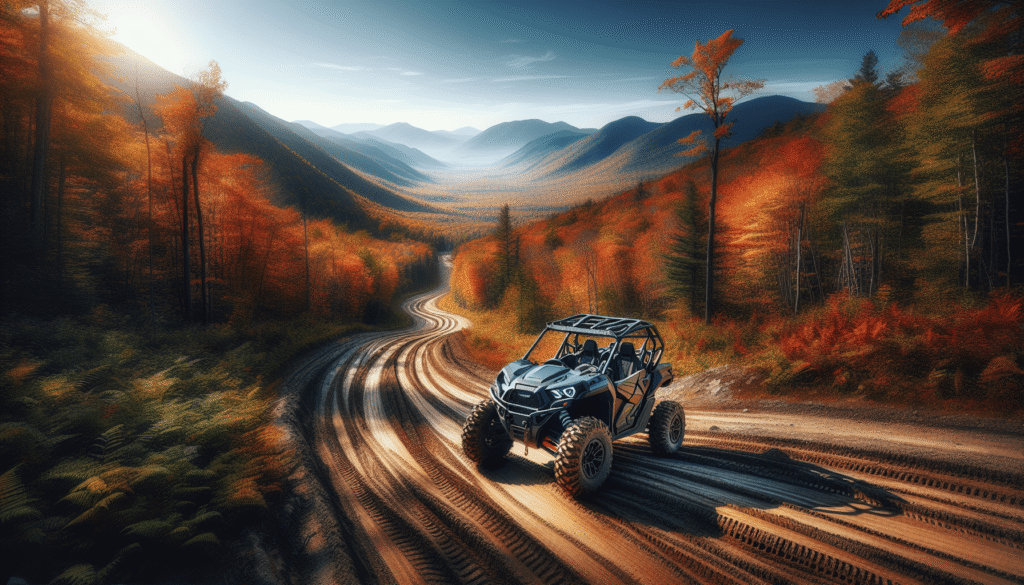Have you ever thought about the thrill of traversing uncharted territories, feeling the crisp mountain air on your face as you navigate through stunning landscapes? If so, the Trans-New Hampshire Overland Adventure Route might just be the next adventure you’ve been waiting for.

Understanding the Trans-New Hampshire Overland Adventure Route
The Trans-New Hampshire Overland Adventure Route is a thrilling network designed for overland enthusiasts, offering a unique blend of scenic beauty, varying terrains, and an opportunity to experience New Hampshire in a way few people do. By connecting several roads, trails, and forgotten backways, you’ll discover the hidden gems of this beautiful state.
Overlanding is all about self-sufficient travel, and this route truly embodies that spirit. Whether you’re in a rugged vehicle or setting off on two wheels, the route provides access to some of New Hampshire’s most stunning vistas and rich history.
Preparing for Your Adventure
Choosing the Right Vehicle
If you’re considering tackling the Trans-New Hampshire Overland Adventure Route, the first step is selecting the optimal vehicle. Your choice will largely depend on your comfort level with off-road driving, the type of terrain you’ll encounter, and how comprehensive you want your adventure to be.
| Vehicle Type | Pros | Cons |
|---|---|---|
| 4×4 SUV | High clearance, excellent traction | Fuel-dependent, may require modifications for tough trails |
| Pickup Truck | Good towing capacity, spacious | Less maneuverable on narrow paths |
| Adventure Motorcycle | Agile, easy to navigate on trails | Limited storage space |
| Mountain Bike | Eco-friendly, can access very rough paths | Requires physical stamina |
| Hiking | No vehicle needed, the journey becomes the destination | Limited to foot paths |
In making your selection, consider what best suits your style and the experiences you hope to share along the route.
Packing Essentials
Once you’ve picked your vehicle, it’s time to pack! The key here is to strike a balance between convenience and necessity. Here’s a basic checklist to guide you:
- Navigation Tools: GPS device, maps, or an app to keep you oriented.
- Camping Gear: Tent, sleeping bag, and portable stove if you plan on staying overnight.
- Food & Water: Non-perishable snacks and a sufficient water supply.
- Emergency Kit: A first-aid kit, tire repair tools, and basic survival gear.
- Clothing: Weather-appropriate attire, including layers for changing conditions.
- Camera: To capture the breathtaking moments throughout your journey!
Remember, the right preparation can make all the difference in how enjoyable your adventure is.
Route Highlights
As you embark from your starting point, prepare to be charmed by the diverse landscapes New Hampshire has to offer along the way.
Scenic Vistas
One of the main draws of the Trans-New Hampshire Overland Adventure Route is its stunning vistas. As you navigate through rolling hills and dense forests, you will find viewpoints that invite you to stop and take in the beauty around you.
- Mount Washington: As you near a famous landmark, take a moment to capture its majesty. Whether you’re looking up at its peak or observing the surrounding valleys, the experience is breathtaking.
- Lake Winnipesaukee: The largest lake in New Hampshire offers gorgeous water views dotted with islands. Plan a stop for shoreline exploration or even a swim!
Historic Sites
New Hampshire is steeped in rich history, and you’ll find many significant sites along the route.
- Cannon Mountain Ski Area: Not just a winter destination, the area offers hiking trails with stunning views and is worth a visit.
- The Revolutionary War Trail: You’ll find markers and points of interest that will help you understand the state’s role in America’s history.
Wildlife Encounters
As you travel, keep an eye open for the diverse wildlife inhabiting the forests and mountains. From birds to bears, you may spot a variety of animals, which adds to the adventure. Just remember to respect their habitats and maintain a safe distance.
Navigating the Terrain
Forested Trails
Many sections of the Trans-New Hampshire Overland Adventure Route take you through dense forests. These tree-lined trails are often narrow and filled with twists and turns, making for an exhilarating drive or ride.
- Tips for Driving: Maintain a steady pace and watch for sudden drops or obstacles, such as fallen trees or rocks.
- Trail Etiquette: Whether biking or driving, always yield to pedestrians and other trail users. Use hand signals to indicate your intentions when sharing trails.
Rocky Paths
You’ll encounter rocky terrain that may challenge even experienced drivers.
- Overcoming Obstacles: If you’re unsure about navigating a rocky area, take your time and assess the best path forward. If necessary, you may need to choose a different route.
- Driving Techniques: Maintain a slow speed and use your gear to control your vehicle’s traction. Engage 4WD when needed.
Water Crossings
In addition to forests and rocks, prepare to cross small streams or brooks.
- Safety First: Before attempting to cross any water, gauge the depth and current to ensure your vehicle can make it safely. If in doubt, look for an alternate route.
- Trail Maps: Many maps or apps provide information on which crossings are navigable; make sure to consult these before setting out.

Trail Safety Tips
Safety should be your top priority while enjoying the Trans-New Hampshire Overland Adventure Route. Keeping a few guidelines in mind can help ensure that you have a fun and safe trip.
Stay on Designated Trails
To minimize impact on the environment, always stick to designated trails. This not only helps preserve New Hampshire’s natural beauty but also keeps you safer and prevents you from getting lost.
Keep Your Distance
While it’s exciting to encounter wildlife, maintain a respectful distance. Animals can be unpredictable, and keeping space ensures both your safety and theirs.
Communication Is Key
Share your plans with a friend or family member before hitting the road. Providing your expected route and timeline can be invaluable should anything go awry.
Stay Hydrated and Well-Rested
Ensure you’re taking care of yourself while out on the trail. Staying hydrated and well-rested is essential for maintaining focus. Take regular breaks to stretch and rejuvenate.
Camping Options Along the Route
As you traverse the Trans-New Hampshire Overland Adventure Route, you may decide to camp under the stars. Having accommodation options allows you to immerse yourself fully in nature.
Campsites
New Hampshire boasts numerous campsites, many of which are conveniently located along the Overland Adventure Route.
| Campsite Name | Features | Location |
|---|---|---|
| White Mountain National Forest | Equipped sites, hiking trails, proximity to scenic roads | Various locations along the route |
| Franconia Notch State Park | Family-friendly sites, fishing, hiking, restrooms | Franconia, NH |
| Bear Brook State Park | Trails, picnicking areas, and wildlife viewing | Allenstown, NH |
Dispersed Camping
If you’re looking for a more secluded experience, consider dispersed camping. It allows you the freedom to camp away from formally designated areas.
- Important Considerations: Always check local regulations regarding scattered campsites. Follow Leave No Trace ethics to preserve these natural spaces for future adventurers.
Enjoying Local Cuisine
Part of any great adventure is experiencing the local cuisine! Whether you’re setting up camp or passing through small towns, sampling regional food adds flavor to your journey.
Dining in Towns
As you navigate through New Hampshire’s quaint towns, take a break to try local restaurants. You may come across:
- Farm-to-Table Eateries: Savor seasonal dishes using fresh, local ingredients. These restaurants often feature menus that highlight regional specialties.
- Diners and Cafés: Many of these are beloved by locals for their home-cooked meals. Breakfast is a must-try, featuring local favorites like blueberry pancakes.
Cooking in the Wild
If you’re camping, there’s something rewarding about cooking in the great outdoors. Here are some handy meal ideas:
- Campfire Chili: A hearty option that requires just one pot. Combine canned beans, tomatoes, and spices for an easy and satisfying meal.
- Skewers: You can skewer vegetables and proteins on sticks for grilling fresh, tasty bites over the campfire.
- S’mores: A classic camping treat! Don’t forget the graham crackers, chocolate, and marshmallows for a sweet end to your day.
Connecting with Fellow Adventurers
One of the best aspects of the Trans-New Hampshire Overland Adventure Route is the community of outdoor enthusiasts you’ll encounter along the way.
Join Online Forums
Share tips, experiences, and even routes with fellow adventurers. Online forums focus on overlanding and RV camping make for a great resource to connect.
Home Base Gatherings
Many towns hold events celebrating outdoor activities. Participating in these events can help you meet like-minded individuals who share your passion for exploration.
Conclusion
The Trans-New Hampshire Overland Adventure Route is more than just a path through a picturesque landscape—it’s an opportunity to connect with nature, encounter new experiences, and meet fellow adventure seekers.
As you prepare for your journey, remember that each twist and turn holds potential adventures waiting to unfold. Whether it’s the thrill of navigating a rocky trail, the serenity of a quiet campsite, or savoring local cuisine after a long day on the road, each moment contributes to your adventure repertoire.
So gear up, stay safe, and enjoy all the magic that New Hampshire has to offer! Your overland journey awaits.

